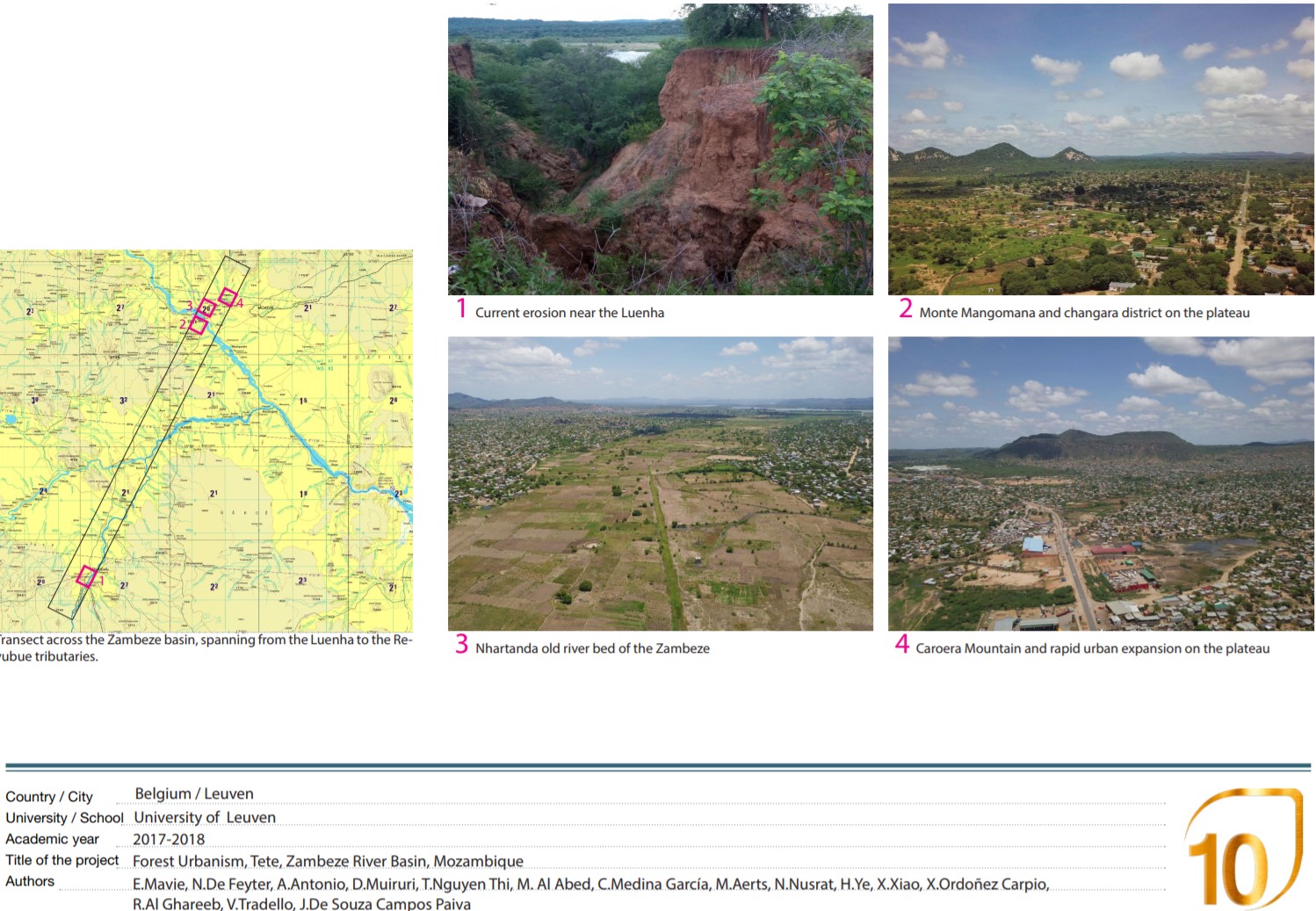
Forest Urbanism, Tete, Zambeze River Basin, Mozambique
Landscape Urbanism Studio: Climate Change & Urban Deltas
University of Leuven
This landscape urbanism studio investigated a transect (140 X 10 km) of the Zambeze river basin between two of its main tributaries (Luenha and Revubue). The thinly forested savannah fastly arrives at a turning point due to the recent coal mining (in the twin-municipalities Tete and Moatize) that also catalyzed fast urbanization. Catastrophic deforestation, massive erosion, water pollution as well as shortage exhaust the self renewing capacity of the environment, while the local population is highly dependent on the resources embedded within the landscape. The design investigates strategies of leapfrogging the ongoing consumption and destruction of the landscape with new (and sometimes age-old) mechanisms of landscape and resource creation. Water is fundamental in this transformation: from a concentrated resource available during short periods of time and coming down the slopes with brutal force, washing away the soil, a series of interventions hold and spread the water over the landscape from the mountainous areas towards the rivers. The landscape is irrigated allowing self-reconstruction. Planting strategies fix eroded gorges and turn them into domesticated land. Along the gradient of wetness and slopes, different ecologies appear and economies can emerge. As such forms of living within the resourceful landscape are re-established that can counter the current unsustainable concentration of settlements on slopes next to rivers or the fragmentation of private domains on the infertile plateaus. The range of vegetation reinvigorates the lifestyle of living under the canopy of a variety of trees that offer a wide range of uses.
